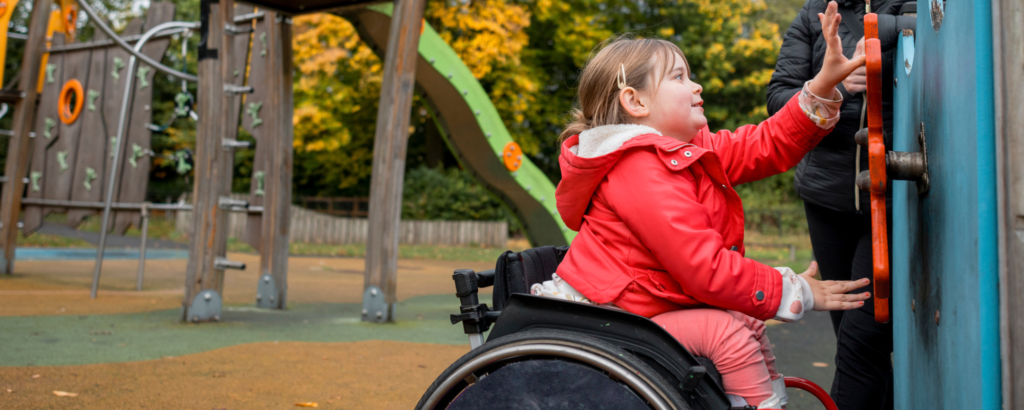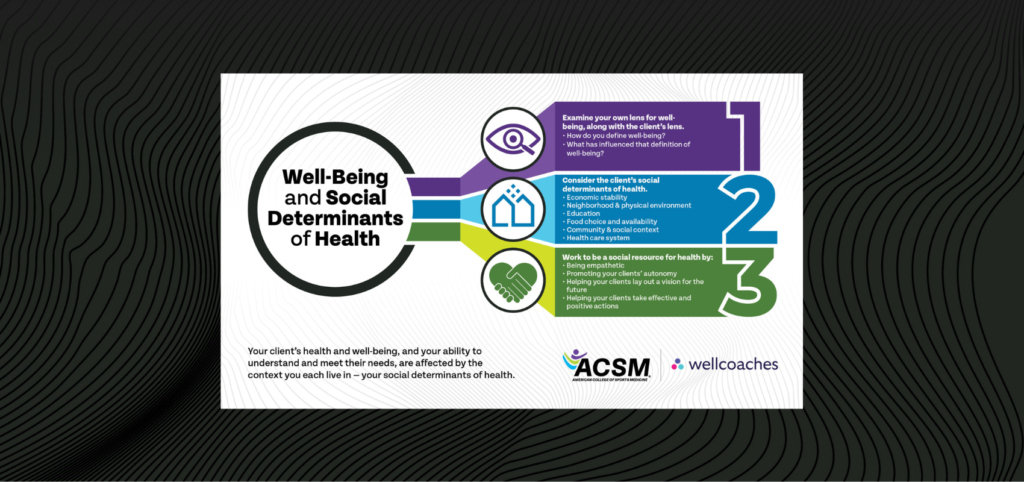The Built Environment and Physical Activity

It has been well-established that physical activity and/or exercise can help to reduce the risk of chronic diseases such as obesity, diabetes, cancer and cardiovascular disease. To reap these benefits, we only need to accumulate 150 minutes per week of physical activity1. That means that you can be physically active for as little as 10 […]
Urban green spaces: A “green third place” to promote community

I love my local public green spaces. I have two (a town park and a nearby school) within easy walking/biking distance from home. We see friends and acquaintances regularly when at the playground, swimming in the river or attending community events like concerts, fairs or athletic competitions. It is wonderful to connect with your neighbors and […]
Physical Activity Guidelines Midcourse Report: A Q&A with Federal Lead Katrina Piercy, PhD, FACSM

Dr. Katrina Piercy, FACSM, is the director of the Division of Prevention Science within the U.S. Department of Health and Human Services’ (HHS) Office of Disease Prevention and Health Promotion (ODPHP), having taken on the role in January 2022. Piercy earned a Ph.D. in exercise physiology and nutrition from Virginia Tech (in the department now […]
Alzheimer’s and Exercise: What Do We Know, and What Can We Do?

Author’s note: This blog post is based in large part upon “Alzheimer’s Disease and Physical Activity” published in ACSM’s Health & Fitness Journal and authored by Barbara Bushman, ACSM, ACSM-CEP, ACSM-EP, ACSM-CPT, and Madison Pullen, ACSM-EP — a more in-depth piece for readers interested in the nexus of Alzheimer’s and exercise. Alzheimer’s disease is “an irreversible, progressive […]
Play(grounds) for All: Inclusive Playgrounds and the Fitness Professional

For children, playgrounds offer numerous physical, social and cognitive benefits, including the development of motor skills, social skills, creativity and independence. These structures, defined as a designated play area that contains traditional play equipment linked together by paths, provide rich contexts for children to explore their social and physical environments. As a result, playgrounds offer […]
Community Gardens: Enhancing Nutrition, Physical Activity and Connection in Neighborhoods Across America

Gardening goes in and out of fashion over time, but the COVID-19 pandemic ushered in a new, younger wave of gardeners, many of whom grow in one of the more than 29,000 community garden plots located in city parks in the 100 largest U.S. cities. Community gardens have many benefits, including promoting healthy eating and physical […]
Social Determinants of Health

Your client’s health and well-being, and your ability to understand and meet their needs, are affected by the context you each live in — your social determinants of health.
February is Heart Health Month: How Are You Monitoring Your or Your Clients’ Hearts?

Cardiovascular health is, if you’ll excuse the pun, at the heart of physical fitness. Appropriate, then, during American Heart Month to have a look at the ways we can monitor our hearts as well as those of our clients. For clients, getting ahold of an at-home blood pressure monitor can be a good start, as […]
Inspiring ACSM Leaders: Antronette (Toni) Yancey, MD

Antronette (Toni) Yancey, M.D., was born in Kansas City, Kansas, in 1957. She studied biochemistry and molecular biology at Northwestern University before attending Duke University for her M.D. and going on to pursue a long and successful career in public health and public health education. Dr. Yancey received a posthumous ACSM Citation Award in 2014. […]
Pedaling toward Activity-Supportive Workplace Environments

Approximately 80% of jobs in the United States are predominantly sedentary. Sedentary work time is also increasing worldwide. National and global policy guidelines recommend breaking up sedentary work time to improve population health and reduce premature mortality. However, policies and job demands requiring workers to remain at their desks, along with limited funds and space for exercise equipment, can […]
